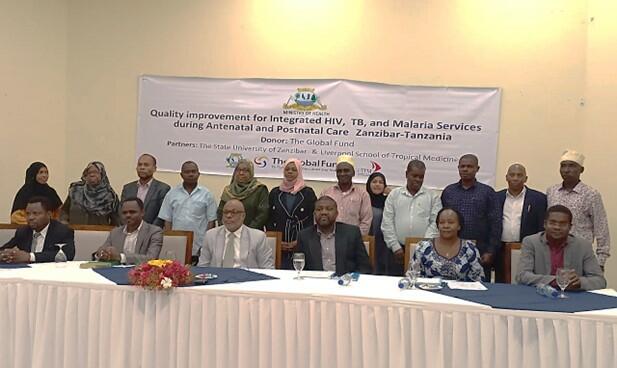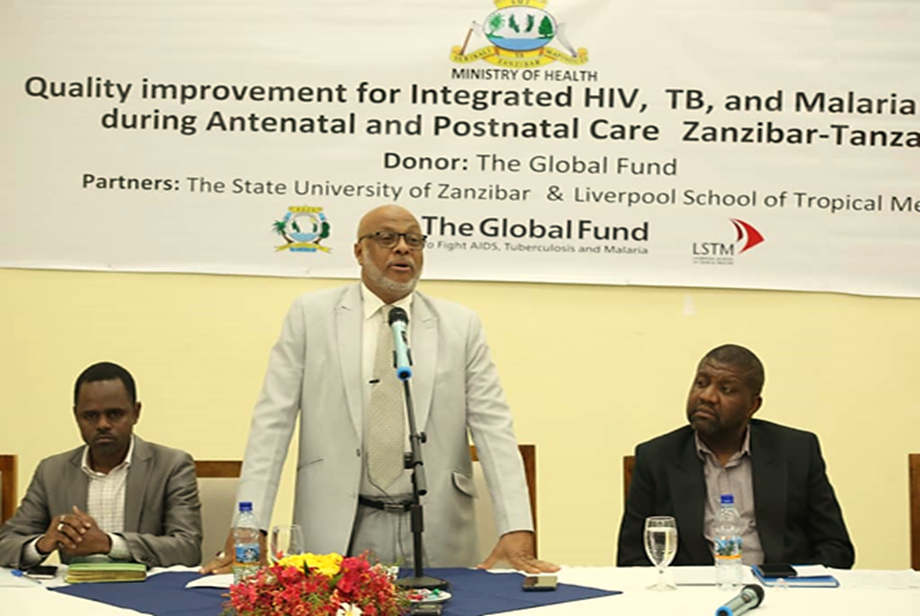
The decline in maternal and newborn mortality remains slow in many Sub-Saharan African countries. Sub-Saharan Africa alone accounted for roughly two-thirds of maternal deaths in the world in 2017. The likelihood of a woman dying of pregnancy-related causes is about 1 in 37 in Africa. Women living in poverty are the least likely to receive adequate health care and experience maternal death. Zanzibar is no exception, the trend of maternal mortality over past decades is not encouraging. The Ministry of Health Zanzibar recently reported an increase in health facility maternal deaths from 150 in 2019/2020 to 162 deaths in 2021/2022. The situation has been aggravated by several factors such as shortage of skilled health personnel, dilapidated health facilities, low quality of antenatal (ANC) and postnatal (PNC) care services compounded by the rapid population increase and rampant traditional practices including home delivery to mention a few.
Improving quality of Maternal and Newborn Health service delivery, is among important strategic interventions towards closing the prevailing gaps in maternal and new-born health outcomes and for the attainment of SDG 3 targets in Zanzibar. Reducing the burden of maternal and newborn morbidity and mortality calls for increased access, availability, and enhanced quality of care throughout pregnancy, during delivery, and in the postpartum period. Access to ANC services, health facility delivery, and postpartum check-ups, play crucial role in safe motherhood.
The Government of Zanzibar is currently undertaking several health systems strengthening initiatives. Among these are the construction of 11 state-of-art hospitals (one in each administrative district) and in upgrading of old and dilapidated health facilities. The collaboration between the State University of Zanzibar (SUZA) and Liverpool School of Tropical Medicine (LSTM) with financial support fromTakeda Pharmaceuticals through theGlobal Fund to fight AIDS, Malaria and Tuberculosis, will directly complement government efforts. The project directly contributes towards improving the quality of ANC and PNC services and targets 10 health facilities (6 in Unguja and 4 in Pemba). Some of the prioritized interventions include in-service capacity building for health care providers on ANC & PNC and maternal and newborn health (MNH) quality improvement through strengthened integration of HIV, Malaria and Tuberculosis in ANC and PNC and provision of basic MNH equipment to the select health facilities; additionally, the project will support evidence generation to inform policy and programming.
The project was officially launched on 19th May 2022 by the Hon. Minister of Health, Zanzibar. The Minister recognized the partnership and project alignment with Country priorities on the road map to universal health coverage (UHC) and attainment of SDG3.

The Chief guest, Minister of Health Zanzibar, Hon Nassor Ahmed Mazrui making the inauguration speech during Project Launch. He underlined that resolving problems in the health sector in Zanzibar calls for joint efforts between government and partners including academic institutions and development partners. The Minister reiterated the government’s commitment to provide all needed support to the project to realize the planned outcomes. The government will consistently track and improve the ANC and PNC services to reverse the curve on maternal and newborn deaths.
The LSTM Regional Technical Advisor, Dr. Rael Mutai, emphasized in her remarks that LSTM will collaborate with the Ministry of Health, Zanzibar in advancing MNH through evidence generation to inform policy and programming and in building staff capacity including through mentorship. The Regional Technical Advisor highlighted that in line with the Global Fund Strategy 2018-2022 to invest in building resilient and sustainable systems for health (RSSH), the project will work closely with the relevant Ministries of Health to adapt, implement, document, and disseminate innovative approaches to improve the availability and quality of integrated HIV, TB and Malaria services in ANC and PNC in three African countries: Nigeria, Kenya and Tanzania.
The State University of Zanzibar extended its appreciations to LSTM and the Global Fund for their efforts in initiating such a timely project with great potential to transform MNH in Zanzibar. Similarly, the Project leader, Dr. Rukia Rajab Bakar, assured the Ministry of Health that the project implementation will be inclusive involving all the key stakeholders to ensure full realization of the project goal and objectives.
Under this collaboration, the Project Principal Investigator (PI) Prof. Charles Ameh of LSTM, UK provides continuous support on capacity building to the SUZA, specifically to the PhD student supported by the project and to the academic staff on evidence generation to inform health policy.